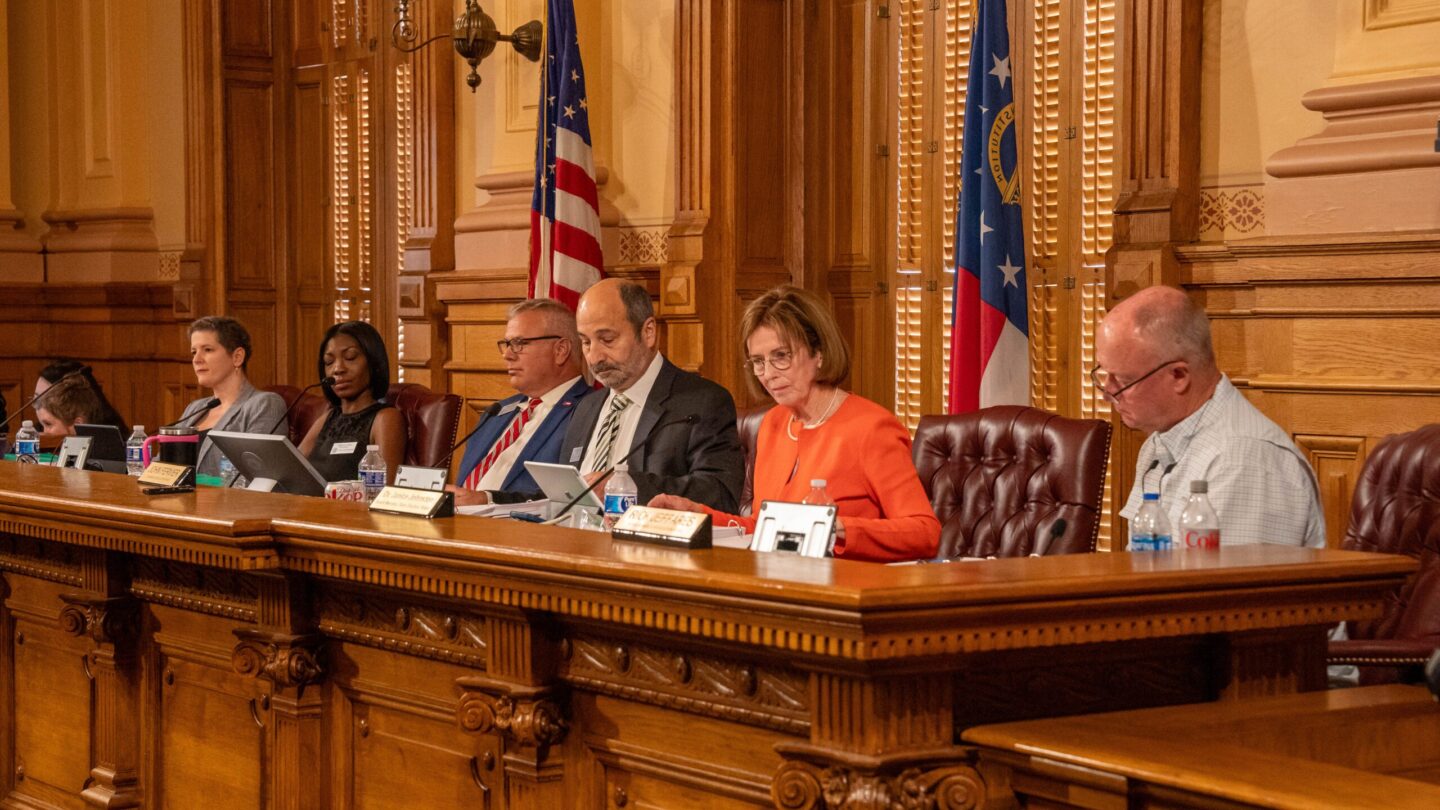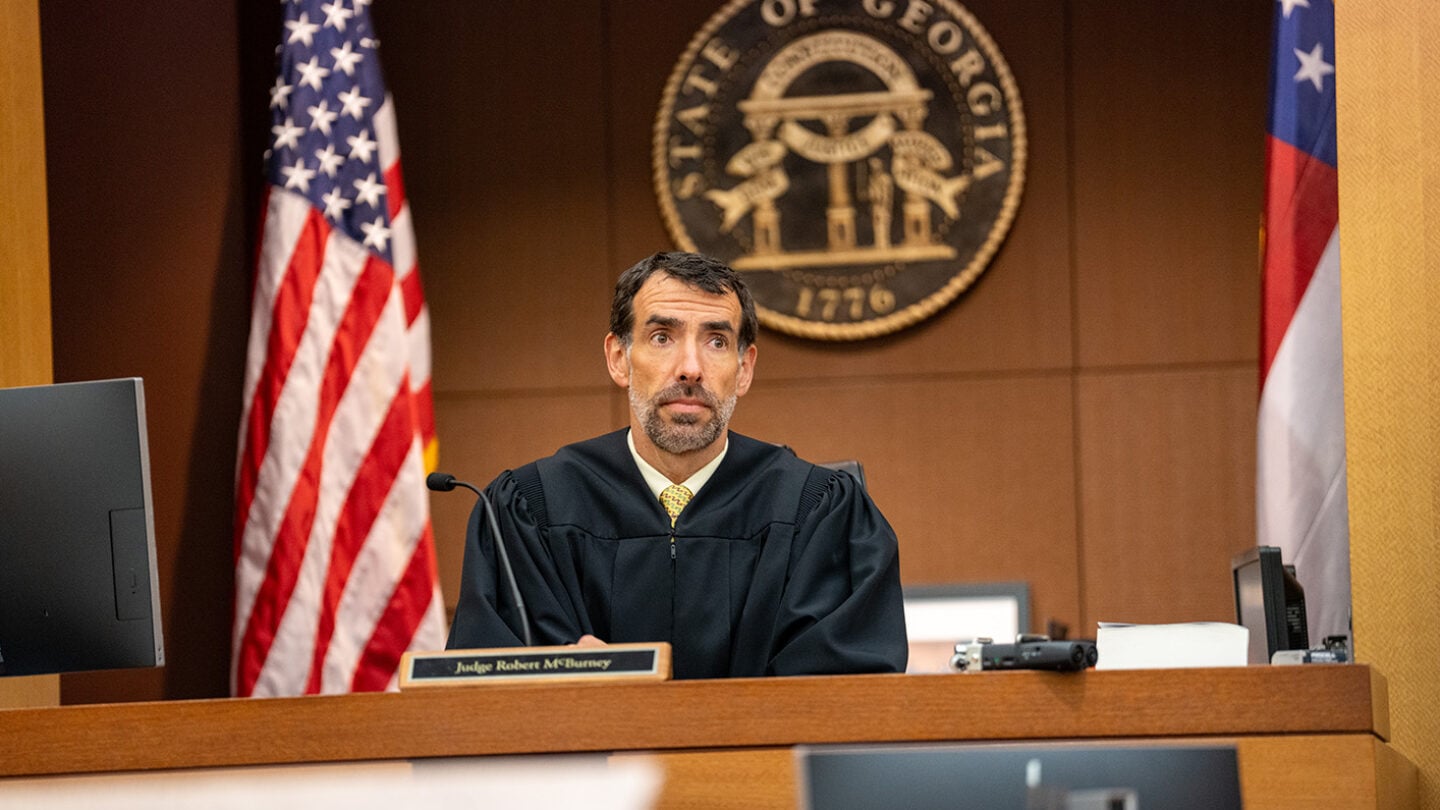A Fulton County judge indicated Tuesday he is unlikely to invalidate controversial new rules on certifying election results but could still issue a ruling clarifying that certification is mandatory.
The case focuses on two measures approved in August by the Republican majority on the Georgia State Election Board that some fear may result in local board members declining to certify results.
Several Democratic local election officials and voters, as well as the Democratic Party of Georgia and the Democratic National Committee, sued the State Election Board, asking the courts to overturn the rules and affirm that Georgia law requires local boards to certify election results.
One rule says local election boards should conduct a “reasonable inquiry” into the accuracy of the count before certifying results. The other says local board members must be allowed to examine all election-related documents “prior to certification of results.”
Trump has applauded the moves of the State Election Board, praising its Republican members by name at an August rally. Republican member Jan Johnston, who attended that rally and has been among the most vocal defenders of the new rules, attended Tuesday’s trial in person.
Is certifying election results mandatory? A judge says yes.
At the start of a roughly two-hour trial, Fulton Superior Judge Robert McBurney asked attorneys for the State Election Board, as well as the Republican National Committee and the Georgia Republican Party which have joined in defending the rules, whether they agreed that certification is not optional and must be done by the state deadline on Nov. 12 at 5 p.m. All said they agreed.
“So we’re debating what election superintendents can do in the period leading up to certification,” Fulton Superior Judge Robert McBurney told the parties. “But we’re not arguing about: must there be a certification and must it be by that deadline.”
Elizabeth Young, the senior assistant attorney general representing the State Election Board, argued that if that mandatory deadline is not in dispute, a ruling simply restating the law is unfounded. She said opponents of the rules were basing their case on possible future scenarios or the alleged intent of the new measures, not on legal problems with the text of the rules themselves.
“Nobody is arguing that these rules were meant to be or can be read to suggest to anybody that their certification duty under the law has been called into question,” Young said. “We’re going to assume that public officials are going to fulfill their duty in good faith.”
“You do your best and you certify and you turn whatever the issue is that you think is not quite resolved over to the district attorney,” she continued.
This year, some local board members have already voted against certification
Lawyers for those challenging the rules pointed out that several local election officials have already voted against certifying election results this year, including in Fulton County. Since the 2020 election, supporters of former President Donald Trump have repeatedly attempted to stall or halt certification of election results in several swing states.
“I happen to live in a county where a member of a board didn’t certify, so I’m wondering when we need to set aside this presumption when faced with real life examples,” McBurney asked the state.
Testimony in a related case, heard by McBurney later in the day, also seemed to conflict with the state’s assertions that there is no reason to suggest local election boards may not certify election results. In that case, Julie Adams, a Republican member of the Fulton County Board of Elections who has voted against certifying elections this year, is separately suing for a declaration that her duty to certify is discretionary.
Richard Lawson, an attorney with the Trump-allied America First Policy Institute who is representing Adams, said that individual board members can vote against certifying or decline to certify certain buckets of votes as long as the board as a whole still moves to certify the votes that are “correct.”
“But it wouldn’t just be Ms. Adams,” McBurney said. “It would be every member of that board who would have that same right and you could very easily have an outcome where there is no certification. How is that consistent with the law?”
Does Georgia law conflict with the new rules?
Even so, McBurney still appeared skeptical of tossing out the certification rules entirely, saying Democrats’ concerns about the potentially unwieldy or vague scope of a “reasonable inquiry” are ultimately limited by the state certification deadline.
“The deadline is the deadline, get done what you can,” McBurney said. “You’re making your inquiry and then it’s wheels up at 5 p.m. on the 12th of November.”
The court “should say precisely that,” said Ben Thorpe, a lawyer for the petitioners.
But Young and lawyers for the other respondents insisted such a ruling would be superfluous. If local election boards test their mandatory certification duty, she argued, the courts could step in then.
“Is that not an emergency action where someone comes to a courthouse on November 13th to say, ‘We don’t have anything from Forsyth County and they had to certify at 5 p.m. yesterday and they haven’t’?” McBurney asked the petitioners. “Get these people to do the job they’re statutorily obligated to do.”
“To wait, to not decide that case,” Thorpe said, “is a definitely worse outcome for all parties involved.”
A ruling is expected in the coming weeks, with little time to spare before election night.
Other lawsuits are pending over additional rules passed by the State Election Board, including a measure passed last month mandating the hand counting the number of ballots cast on election day.










